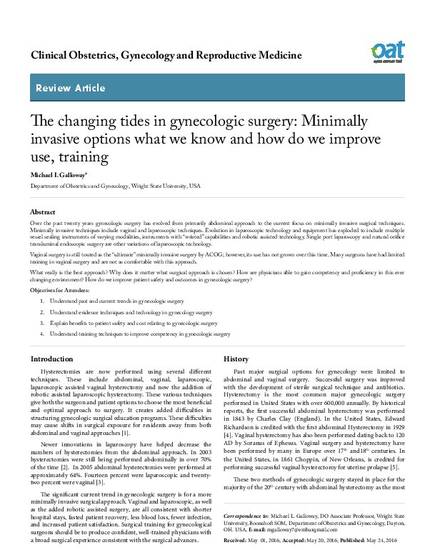
Over the past twenty years gynecologic surgery has evolved from primarily abdominal approach to the current focus on minimally invasive surgical techniques. Minimally invasive techniques include vaginal and laparoscopic techniques. Evolution in laparoscopic technology and equipment has exploded to include multiple vessel sealing instruments of varying modalities, instruments with “wristed” capabilities and robotic assisted technology. Single port laparoscopy and natural orifice transluminal endoscopic surgery are other variations of laparoscopic technology.
Vaginal surgery is still touted as the “ultimate” minimally invasive surgery by ACOG; however, its use has not grown over this time. Many surgeons have had limited training in vaginal surgery and are not as comfortable with this approach.
What really is the best approach? Why does it matter what surgical approach is chosen? How are physicians able to gain competency and proficiency in this ever changing environment? How do we improve patient safety and outcomes in gynecologic surgery?
Available at: http://works.bepress.com/michael-galloway/23/
